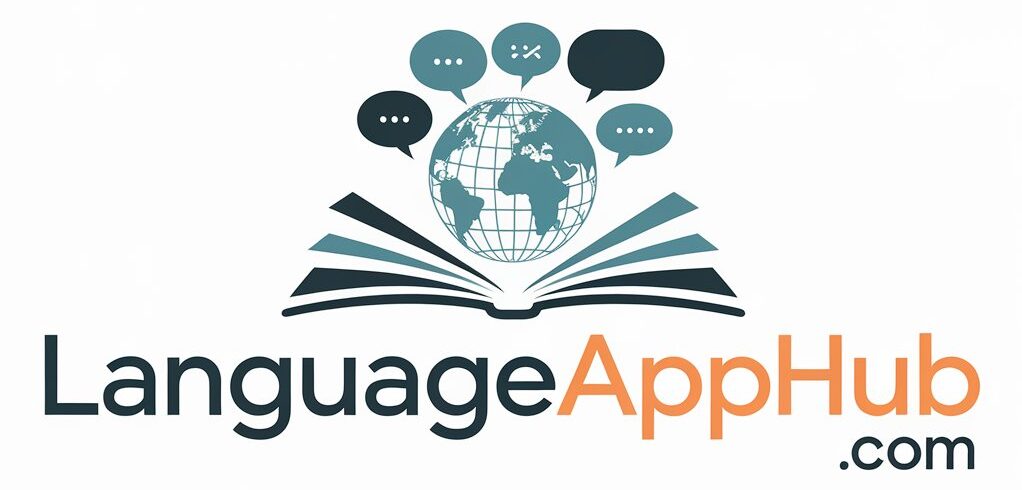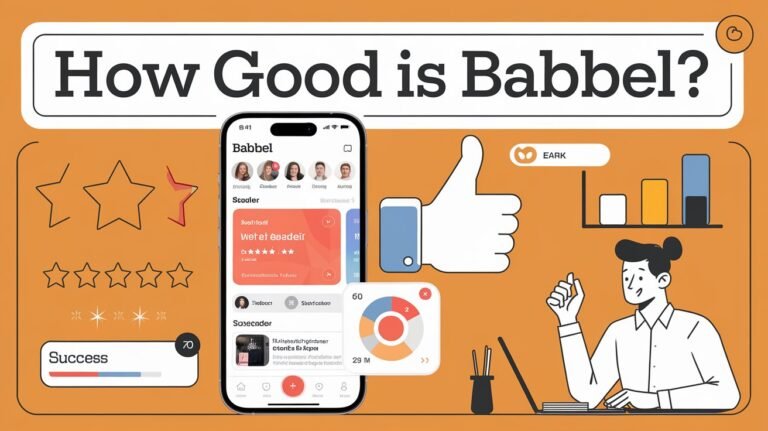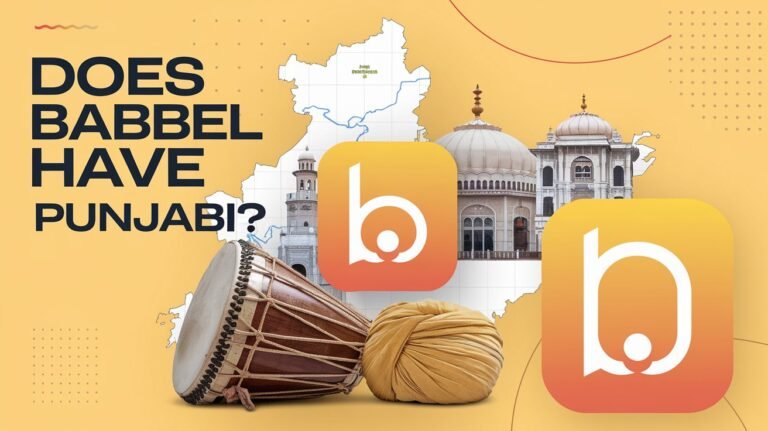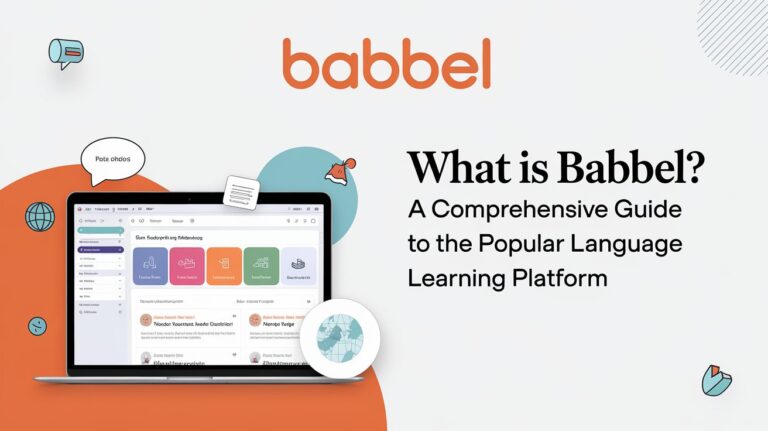Is Babbel Worth It? A Comprehensive Review of the Language Learning App
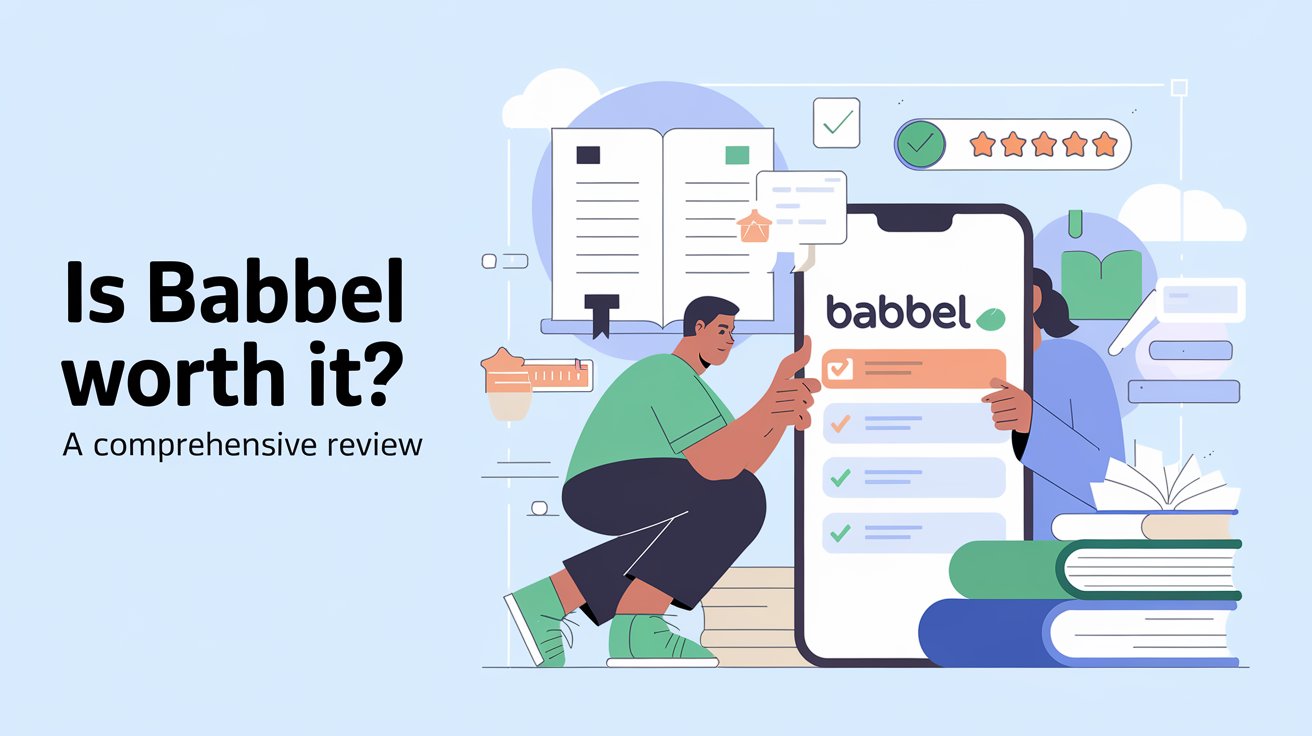
Learning a new language can open doors to new cultures, career opportunities, and personal growth. With so many language learning apps available, it’s natural to wonder if Babbel is worth the investment. Babbel offers a unique approach to language learning, combining expert-crafted lessons with practical conversation skills, making it a valuable tool for many language learners.
In this detailed review, we’ll explore Babbel’s features, effectiveness, pricing, and how it stacks up against other language learning options. By the end, you’ll have a clear picture of whether Babbel is the right choice for your language learning journey.
What is Babbel?
Babbel is a popular language learning platform that’s been helping people learn new languages since 2007. Founded in Germany, Babbel has grown to become one of the most widely-used language apps worldwide.
Brief history and background
Babbel was created by a team of language enthusiasts and tech experts who wanted to make language learning more accessible and effective. Over the years, it has evolved from a simple vocabulary trainer to a comprehensive language learning system.
Languages offered
Babbel currently offers courses in 14 languages:
- Spanish
- French
- German
- Italian
- Portuguese
- Russian
- Swedish
- Turkish
- Dutch
- Polish
- Norwegian
- Indonesian
- Danish
- English
This range covers many popular languages, making Babbel a great option for learners with diverse language goals.
How Babbel Works
Babbel’s approach to language learning focuses on practical, real-world communication skills. Let’s take a closer look at how the platform is structured.
Lesson structure and methodology
Babbel’s lessons are designed to be short and engaging, typically lasting 10-15 minutes. This bite-sized approach makes it easy to fit language learning into your daily routine. The lessons follow a logical progression:
- Introduction of new vocabulary and phrases
- Practice exercises to reinforce learning
- Review sessions to ensure long-term retention
Babbel uses a method called “spaced repetition” to help you remember what you’ve learned. This technique presents review material at increasing intervals, helping move information from short-term to long-term memory.
Key features of the platform
- Speech recognition technology for pronunciation practice
- Personalized review manager
- Offline mode for learning on-the-go
- Cultural tips integrated into lessons
- Grammar explanations in your native language
Babbel vs. Free Language Learning Apps
When considering whether Babbel is worth it, it’s natural to compare it to free alternatives like Duolingo. Let’s break down the key differences.
Comparing Babbel to Duolingo
While both apps aim to teach languages, their approaches differ significantly:
- Content creation: Babbel’s lessons are created by language experts, while Duolingo relies more on user-generated content and algorithms.
- Focus: Babbel emphasizes practical conversation skills, while Duolingo’s exercises can sometimes feel more game-like.
- Depth: Babbel offers more in-depth grammar explanations and cultural context.
Quality of content and user experience
Babbel’s paid model allows for a more polished, ad-free experience. The content is tailored to your native language, making explanations clearer and more relevant. However, Duolingo’s gamified approach can be more engaging for some learners.
Pricing and Subscription Options
One of the key factors in determining if Babbel is worth it is the cost. Let’s break down the pricing structure.
Cost breakdown
Babbel offers several subscription options:
- 1 month: $17.95
- 3 months: $15.25 per month
- 6 months: $50.70 ($8.45 per month)
- 12 months: $83.40 ($6.95 per month)
Prices may vary slightly depending on promotions and the specific language course.
Value for money
When considering the value, it’s important to compare Babbel’s cost to traditional language learning methods:
- Private tutoring: Can cost $30-$50 per hour
- Language classes: Often $200-$300 per month
- Textbooks: $50-$100 each
In this context, Babbel’s pricing seems quite reasonable, especially if you commit to regular use.
Effectiveness of Babbel
The ultimate question is: does Babbel actually work? Let’s look at some evidence.
Research studies and user success stories
A study conducted by researchers at Yale University found that 100% of participants improved their language proficiency using Babbel, with 75% of learners improving their oral proficiency in just 3 months.
Many users report being able to have basic conversations in their target language after a few months of consistent use. However, individual results can vary based on factors like learning style, consistency, and prior language experience.
Learning outcomes and progress tracking
Babbel provides regular progress assessments and review sessions to help you gauge your improvement. The platform adapts to your performance, focusing more on areas where you need extra practice.
Pros of Using Babbel
Expert-created content
Babbel’s lessons are crafted by a team of over 100 linguists and language experts. This ensures high-quality, accurate content that’s tailored to your learning needs.
Focus on practical conversation skills
Babbel emphasizes real-world communication from the start. Lessons often revolve around practical scenarios like ordering food, asking for directions, or making small talk.
Personalized learning paths
The app adapts to your progress, creating a customized learning experience. This helps you focus on areas where you need the most improvement, making your study time more efficient.
Cons of Using Babbel
Limited advanced level content
While Babbel is excellent for beginners and intermediate learners, advanced learners might find the content lacking in some languages. The depth of advanced material varies by language.
Lack of speaking practice with real people
While Babbel offers speech recognition for pronunciation practice, it doesn’t provide opportunities to converse with native speakers (except through Babbel Live, which we’ll discuss later).
Who Is Babbel Best For?
Beginner to intermediate learners
Babbel shines for those just starting their language learning journey or looking to brush up on intermediate skills. The structured approach and focus on practical vocabulary make it ideal for these levels.
Busy professionals and travelers
The bite-sized lessons and mobile app make Babbel perfect for fitting language learning into a busy schedule. It’s great for professionals looking to enhance their language skills or travelers preparing for an upcoming trip.
Babbel Live: Online Classes with Native Speakers
For those seeking more interactive learning, Babbel offers a separate service called Babbel Live.
How Babbel Live works
Babbel Live provides small group classes (typically 3-6 students) led by certified language teachers. These live online sessions allow you to practice speaking and receive immediate feedback.
Pricing and benefits
Babbel Live is priced separately from the main app:
- 1 month: $99
- 3 months: $70 per month.
- 6 months: $60 per month.
- 12 months: $50 per month.
While pricier than the self-study app, Babbel Live offers unlimited classes during your subscription period, making it potentially great value for dedicated learners.
Alternative Language Learning Platforms
Comparison with Rosetta Stone and Pimsleur
- Rosetta Stone: Known for its immersive approach, Rosetta Stone is more expensive than Babbel but offers a wider range of languages.
- Pimsleur: Focuses heavily on audio learning and is great for improving listening and speaking skills, but lacks the visual elements and grammar explanations of Babbel.
When to consider other options
If you’re an advanced learner, need a language not offered by Babbel, or prefer a different learning style (like pure audio lessons), you might want to explore other platforms.
Tips for Maximizing Your Babbel Experience
Setting realistic goals
Set specific, achievable goals for your language learning. For example, aim to complete one lesson per day or learn 50 new words per week.
Complementing Babbel with other resources
While Babbel is comprehensive, combining it with other resources can enhance your learning:
- Language exchange apps for conversation practice
- Podcasts or YouTube videos in your target language
- Reading books or news articles to expand vocabulary
Is Babbel Worth the Investment? Final Verdict
Babbel is a good choice for many language learners. It’s strong in teaching useful skills and adapts to your needs. It works well for beginners and mid-level learners who want to talk better. The price is fair, and short lessons help you learn often. But it’s not perfect for everyone. Advanced learners or those needing very specific skills might need something else. Your goals and how you like to learn matter too. Try Babbel’s free trial to see if you like it. If you use it regularly, Babbel can help you learn a new language well. The best way to learn is one you’ll actually use often. If Babbel fits your life, it could help you learn faster.
